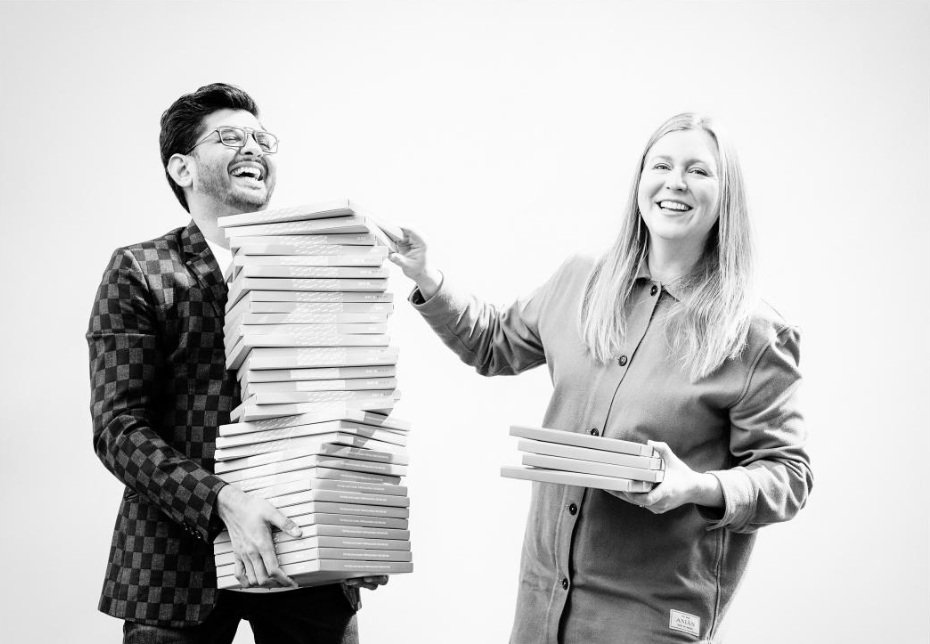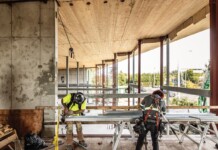In 2020, Victoria-based entrepreneurs Linda Biggs and Jayesh Vekariya founded Joni, a startup driven by a vision to transform period care through sustainability and accessibility. Its commitment to local impact — donating five per cent of revenue to community initiatives and addressing period poverty, for example — shows how Joni has emerged from a community, creating local, community- level value out of the gate, rather than just “giving back” as an afterthought.
Recently, Joni celebrated its expansion into Costco, another powerful player in the world of doing capitalism differently. The shockwaves running through the Canadian economy because of the threats of massive tariffs have driven many consumers and businesses to rethink their processes and their relationships. Joni’s success signals a possible way forward.

Imagine what things would have been like if more Canadian businesses had — from their inception — balanced profits with a commitment to the communities? How much more resilient and self-reliant would Canadian businesses and the national economy be now?
Profits, growth and global markets matter.
They are essential to a thriving national economy. But most companies and whole industries have put efficiency and profit- maximization above all other values. The grinding of suppliers, off-shoring, hyper- lean supply chains, plus environmental and community degradation, have put our country, our communities and even the businesses themselves at serious risk.
The Power of Local Interdependence
A strong, interdependent local business ecosystem can be a stabilizing force in the face of global disruptions like tariffs or supply-chain issues. Local interdependence means prioritizing relationships with local suppliers, reinvesting in local talent and acting as a trusted partner to customers and community organizations.
At the heart of this is a virtuous cycle: Healthy businesses supporting healthy communities, which in turn support business growth. It’s not about “staying small” or ignoring the importance of profits and growth. Rather, it’s about balancing these values with a commitment to local and regional ecosystems.
Local interdependence means prioritizing relationships with local suppliers, reinvesting in local talent and acting as a trusted partner to customers and community organizations.
Joni’s story of growth shows that businesses built with local interdependence “baked in” are better equipped to navigate an uncertain future. When businesses treat their communities as partners, they build a foundation for shared success that endures through both good times and bad.
Building Resilience from the Ground Up
Where to begin if you’re a new entrepreneur? Start right where you are: in your community.
Walk your neighbourhood. Literally and figuratively. Walk through your neighbourhood, knock on doors, talk to other business owners, book coffee with your neighbours and competitors. Look for opportunities to source what you need from nearby suppliers — whether it’s raw materials, printing services or fresh ingredients for a café. Rethink logistics; it’s about weaving your business into the fabric of the community. Done formally, there’s a name for this: clustering, which means creating a network of interconnected businesses in a community or region that reinforce and support each other. Clusters benefit from shared resources, knowledge exchange and a stronger collective presence. Clustering creates localized supply, value and knowledge ecosystems.
Invest in your people. Your first hires are going to be some of the most important relationships you build. Don’t think of them as employees only — think of them as the first members of your business community. Design your business from the ground up to facilitate a living wage (at a minimum), stable hours and a path for growth.
Build a durable foundation. Scale on sustainable foundations. This means making sure your cash flow is healthy, your operations are standardized and you’ve got a handle on your margins. It also means building strong relationships with Canadian suppliers, local distributors and the community in which you are operating.
Build learning relationships with customers. Don’t hide behind your website or your brand. Local interdependence means prioritizing relationships with local suppliers, reinvesting in local talent and acting as a trusted partner to customers and community organizations. Get out and talk to your customers. Ask what they love and how you can make their lives better. Take a minimum viable product (MVP) approach to everything you do, refining your business ideas with feedback from real interactions with real customers. Focus on learning as much as doing.
Resilient Entrepreneurship
Often, resilience for entrepreneurs focuses on personal well-being: mindfulness, exercise, good time management. These are valuable, but they miss the most powerful element: the resiliency that comes from the support of others and our community. Building a resilient business is about creating something that lasts because it matters. We live in a world that too often rewards and even celebrates short- term thinking and selfishness. As entrepreneurs we can choose instead to invest in our communities, and in sustainable, non-exploitive growth. Entrepreneurs are wired to build the unbuildable. We don’t accept that something can’t be done. Building businesses through this kind of interdependence is extremely hard work. It means rethinking the way everything has been done, experimenting, failing and rethinking again. But it’s what we do.
Clemens Rettich is an organizational consultant with Beaton Rettich Waters. Once and always a musician and an educator, he has spent over 30 years practising the art of management. Rettich also shares his passion for leadership and organizational behaviour with his students at the Peter. B. Gustavson School of Business at the University of Victoria.
























